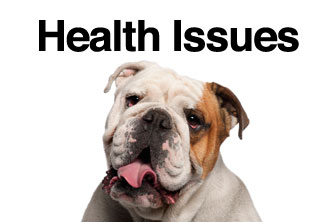High Doses of Vitamin C
 I recently wrote about how to choose the best multivitamin and mineral supplement. Here I want to look at Vitamin C in more detail. For simplicity, I will structure this with questions.
I recently wrote about how to choose the best multivitamin and mineral supplement. Here I want to look at Vitamin C in more detail. For simplicity, I will structure this with questions.
About Vitamin C
Vitamin C is also known as ascorbic acid, and it is present in a lot of fruits and vegetables. Vitamin C is an antioxidant, which means it gets rids of our body’s pollution, known as free radicals. It also boosts your immune system, and has antibacterial and antiviral powers.
Does Vitamin C Protect Against Infections?
Of course, but only at high doses. The RDA is 60mg. This is merely to stop you getting scurvy. Based on what the nutritionist Patrick Holford says, Vitamin C does not do much to prevent infections if you take less than 1,000mg per day. You really need 1,000mg per day or more to really see results from taking Vitamin C.
How Much Should I Supplement?
For prevention, taking 2,000mg per day will help stop you getting a cold. The Vitamin C Foundation actually advises 3,000mg per day. This is not difficult to achieve, because high strength Vitamin C are inexpensive and easy to buy.
Having said that, you should take higher doses of Vitamin C when you are actually fighting an infection. The nutritionist Patrick Holford says you should start your attack right at the beginning, and says you should take 3,000mg when you first notice any symptoms, followed by a further 3,000mg at four hour intervals thereafter, making your daily total intake of Vitamin C somewhere between 10,000mg and 15,000mg. Once again, according to the Vitamin C Foundation, 20-30,000mg per day while infected is recommended.
Will Too Much Vitamin C Harm Your Body?
Absolutely not. Vitamin C is water soluble, and that means that you just urinate out any that is not used. Loose bowels or indigestion are the only problems you will ever be likely to suffer from, but these tend to happen at doses of 5,000mg or more, and once the dose is lowered the symptoms usually go away. Taking 1,000mg two or three times a day with food should not cause you any problems.
Vitamin C is one of the most harmless things you can put into your body, but it provides so many health benefits.
Besides Fighting Infections, What Else Does Vitamin C Do?
Vitamin C does more than just fight infections, for example:
It keeps your skin, bones and joints healthy by making collagen.
It is a natural anti-histamine.
It helps prevent cancer.
It improves the health of your heart.
It is involved in making anti-stress hormones.
Helps keep your mood stable, helps to balance out your brain’s neurotransmitters – people with mental illness can be deficient in Vitamin C. You can go crazy if you don’t get enough Vitamin C.
Helps turn food into energy.
Vitamin C Deficiency Symptoms
Frequent colds or infections are a sign that you are deficient, and so is a lack of energy. Other symptoms are slow wound healing, nosebleeds, bleeding or tender gums, easy bruising or red pimples on your skin.
But there is no need to wait until you experience such undesirable symptoms Supplement 2,000mg a day anyway.
Foods Rich in Vitamin C
Even if you eat an extremely healthy diet, you will struggle get anywhere near 2,000mg of Vitamin C. It is still well worth eat lots of fruit and vegetables though. The richest sources of Vitamin C are watercress, peppers, broccoli, cabbage, strawberries, cauliflower, kiwi fruit, lemons, peas, oranges, melons, grapefruit, tomatoes and limes
